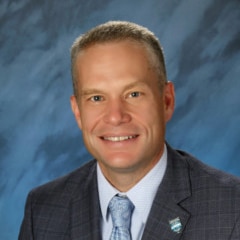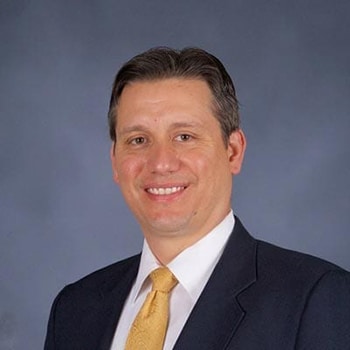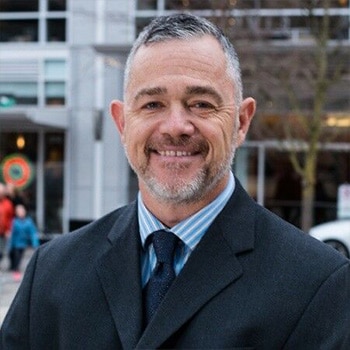Mental Health Insights

Speaker Name: Dr. Devon Horton
Job Title: Superintendent
District: Evanston/Skokie District 65
Session: Supporting Your Students for the Future
Dr. Devon Horton: The most important part that we need to identify is that here in Evanston/Skokie 65 right north of Chicago we are on a journey to really do some aggressive but structural deficit approaches. We’ve been looking at this whether it’s in the pandemic or not, we have structures here that have not benefited our students. So right now we’ve launched a really aggressive student assignment planning which is [redistricting 00:00:29] which will yield dollars. But of course you know when you say the R word it comes with a lot of pain. But I’m going to say what our budgeting right, there’s the now things that we must approach, and then there’s the future. And so with our now right now we are in the process, we just posted positions for some additional, well actually new to the district mental health practitioners for our district, a couple of those.
We are also, we just posted guidance counsellors. And I’m just going to say this, for our now in our middle schools we do not do the best job of really helping our students identify what the future looks like for them on, we have the mental health side, but also for their careers. I would say that there’s been a responsibility that has really fallen on the laps of our classroom teachers. We want teachers that really lock in and focus on teaching, and we would love for our guidance counsellors to help guide our students into the future. And the district, what’s unique about here, we are a K8 school district. So we don’t have high school students, but all of our students feed into one high school, comprehensive high school and it’s one of the top high schools in the nation.
But our African America students and our Latinx students go into the schools and many times are not prepared to receive some of the supports and resources that they have at the high school. So we’re going to increase that as part of our now. I would also like to say that we are for our right now, we know that when you think about – let’s take away the pandemic. What happens when many of our children, our own personal, our own children at home are struggling in literacy and numeracy, we put them in tutoring. What is research? You can pull [ed 00:02:04] research or for recovery, it talks about high-dosage tutoring really helps to move the needle when we talk about students that need to experience new learning that they haven’t had a chance to receive this year.
And also when you’re looking for student who may have, let’s just be honest, who are not where we would like them to be before the pandemic happened. We have arguably one of the largest achievement gaps in the country between our black and white students. Like that has – and you know this can only be extended from, especially at the younger ages as Dr. [Bedell 00:02:38] spoke about in his session. So we are now creating something in our middle schools, what we call academic skill centres. These academic skill centres will focus on a few things, executive functioning, strategies to help students’ note-take, organize, just get caught up and/or to get exposure to many of the opportunities around math advancement and things of that nature, that’s part of that. This is a part of our now.
And then also in that academic skill centre we were going to really help build out students’ confidence around learning and engaging and building those relationships as Susan spoke of. We’re going to tap into some of our local universities. We have Northwestern University as our neighbour and partner, to potentially bring them in to help in these [ASCs 00:03:23]. We want our teachers to be able to lock in the learning front and the social emotional support with them. I was would also say something that was talked about on this call. We just launched a curriculum body, a large-scaled one. And the results will come back sometime in July. And I already have, I got a little briefing on what we’re going to find and we’re going to have to spend some time really understanding that a text book is not curriculum.
And we’re going to have to build curriculum and make sure that we are – that it’s viable and that it’s authentic, that it really and it really connects to our learning, and that we can give our students and our teachers some autonomy around the resource because that’s what textbook are, they’re resources. So that’s a culture and an understanding that we’re going to have to address in the now, which will yield future outcomes to change. But I would say most importantly when we think about the future of our state one of the major pieces that we’re doing is going to have an everlasting impact in this district. Before we knew these dollars were coming we applied to build an urban future residency where we were going to going to look at teachers or aspiring teachers who want to go into the field who have a Bachelors in maybe a career change or majored in something else and they want to go into the field.
And we have partnered with Northwestern University and National Louis, we talk about their partnership where we’re going to have 20 residents for the next few years to actually come in and train at two of our schools. And if you’re familiar with the Urban Teacher Residency design you’ll know that individuals they take classes in the summer. They get assigned a ratio of one to two with really highly effective teachers and they are engaged in a learning cycle thinking about the medical field for a full year and we’re going to use some of these ESSER dollars to pay them because we don’t want our residents driving Uber in the evening. We don’t want them working at Target. We want them committed and locked-in on the workload of what real teachers experience, and then the priority of this was really powerful is that the grant was written with the intention of diversifying outreaching workforce.
I want to be clear we don’t have a teacher shortage here in our school district be we do have a diversity shortage. And so this residency has been built to identify residents Latinx, brown, Asian, that’s from this community that lives in this area that we can take through our program, one full year, they get training, boots on the ground so think about a medical residency. And then in one year we staff them in our schools. And there’s a lot of research around what happens when you take a school and you turn that school into a training academy there are major benefits that come with that. So we use the ESSER dollars in that way as well. So there’s – as I’m thinking about our summer, I actually need to just scale back and cover this, we traditionally only offer 500 seats for 8000 school students, and we’ve only offered 500 seats and traditional for helping in the summer.
We’ve now extended that to 1500. And we have a lot of seats for students to actually be exposed. And we’re not just offering a one-size program, we’ve reached out to RFPs for community partners, our own internal, we even released RFP for our teachers who are interested in designing some unique programming for students in the summer. We approved and now got 1500 that’s going to be engaged in the learning. Very similar Susan to what you said regarding extending school. That’s definitely going to have to happen somewhere but right now as a single district where we have a high school partner it’s hard to say “Let’s change our calendar” without getting the other side involved in it.
So it’s something that I can see us a community having some deeper discussion about knowing that this pandemic has really – I think what John Lewis says is you never miss the opportunity to get into some good trouble. This is good trouble time, right, let’s change this antiquated calendar, and let’s think about how we support our students and not looking at them from a deficit mindset. Let’s enhance and put teachers in front of our students that look like them. Let’s be intentional about that. Let’s train them in the work so they can come in and make this work. So I think this is just a way for me to package in this budgeting. There’s a lot opportunities and again it was said on here by Dr. Avossa and Susan said it as well, you cannot approach the community without a plan or they will look to take over the money; and so I get communications quite often bout what we’re doing. So thank you.
Note: The following text is transcribed from the event audio. It’s largely accurate, but in some cases it may be a bit off due to inaudible passages or transcription errors. It’s intended as an aid to understanding the event, but it shouldn’t be treated as an authoritative record.


